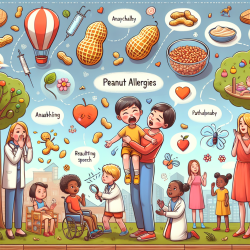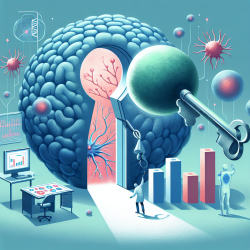Understanding the Global Burden of Peanut Allergy
The prevalence of peanut allergy (PA) is a growing concern worldwide, affecting approximately 2% of the population in Western nations. This condition not only impacts the individuals with the allergy but also places a significant burden on their families and caregivers. The recent comprehensive literature review by Lieberman et al. (2021) provides valuable insights into the multifaceted challenges associated with PA, emphasizing the need for practitioners to enhance their understanding and management strategies.
Key Findings from the Research
The review highlights several critical aspects of PA:
- Accidental Exposure and Anaphylaxis: Approximately 7%–14% of individuals with PA experience accidental exposure annually, with a significant proportion facing severe reactions or anaphylaxis. This underscores the importance of effective management and prevention strategies.
- Economic and Healthcare Burden: The financial impact of managing PA is substantial, with high healthcare utilization and economic costs. This includes emergency treatments and preventive measures, which are often inadequate due to inconsistent food labeling and safety policies.
- Psychosocial Impact: Children with PA often face bullying, leading to emotional distress, anxiety, and a reduced quality of life. This aspect highlights the need for supportive environments both at home and in educational settings.
Implications for Practitioners
Practitioners, including speech-language pathologists, play a crucial role in supporting children with PA and their families. Here are some actionable steps based on the research findings:
- Enhance Awareness and Education: Practitioners should stay informed about the latest research and guidelines on PA. Educating families about the risks and management strategies is essential to minimize accidental exposure and improve quality of life.
- Advocate for Policy Improvements: Engage with schools and policymakers to advocate for better food labeling standards and safety policies. This can help reduce the risk of accidental exposure in public settings.
- Support Emotional Well-being: Recognize the psychosocial impact of PA on children and provide support through counseling and peer support groups. Encouraging open communication about their condition can help reduce anxiety and improve coping strategies.
Encouraging Further Research
While the review provides a comprehensive overview of the global burden of PA, there is still much to learn. Practitioners are encouraged to engage in further research to explore innovative management strategies and interventions. Collaboration with interdisciplinary teams can lead to more holistic approaches to care.
To read the original research paper, please follow this link: The global burden of illness of peanut allergy: A comprehensive literature review.










